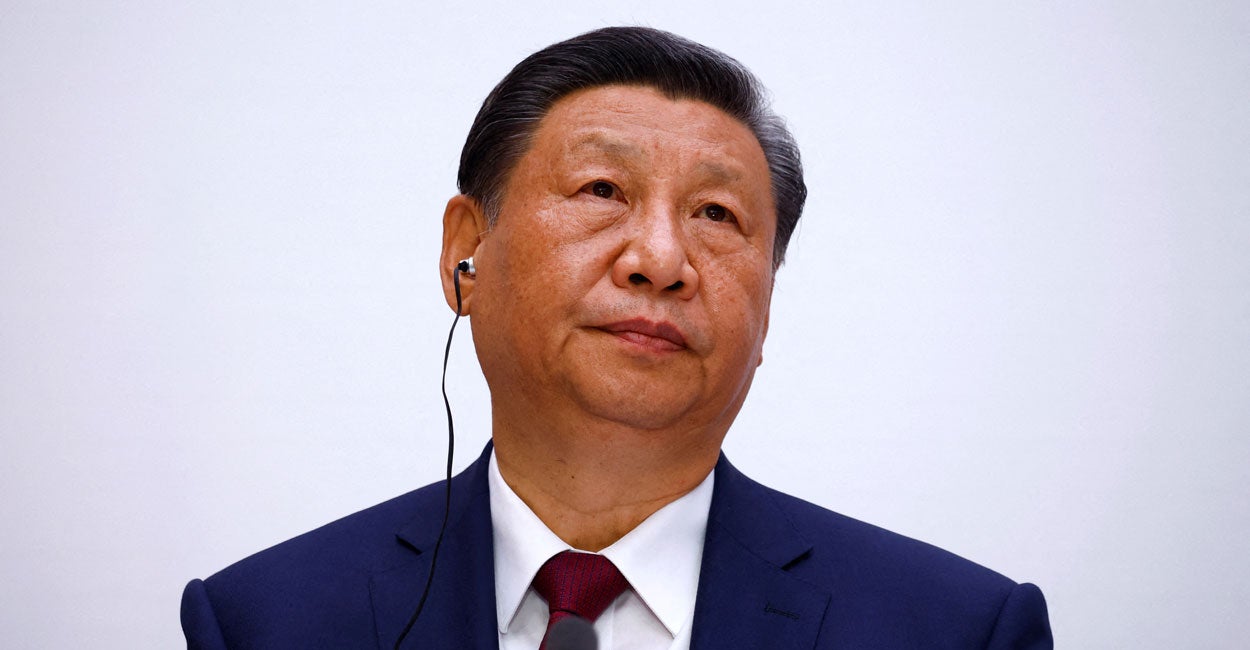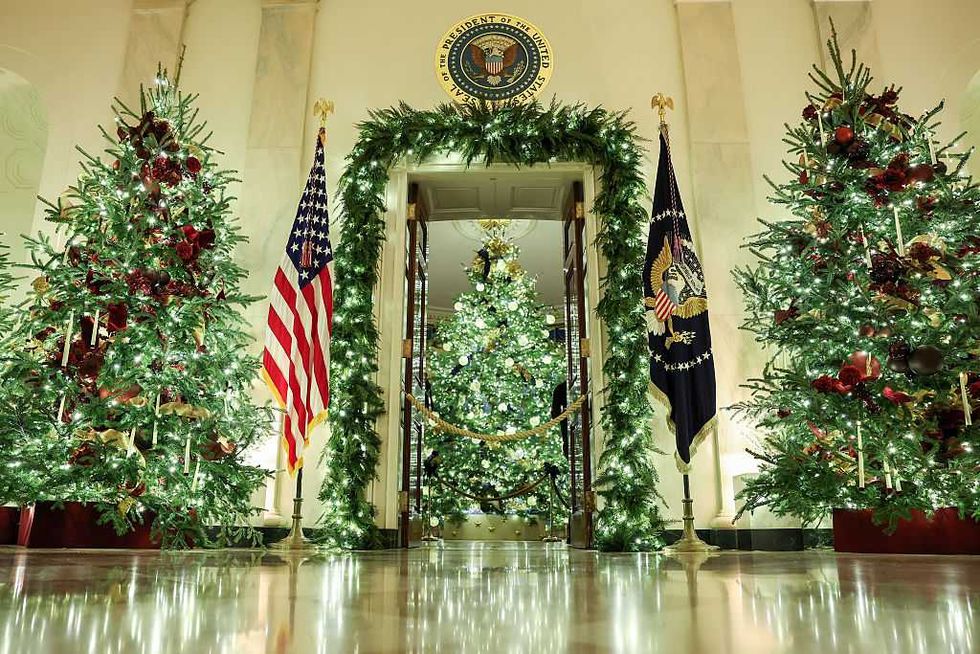Chinese Interference in the Elections of St. Vincent and the Grenadines

Stories of Chinese foreign infiltration continue to spread. The latest? Vincentian Prime Minister Dr. Ralph Gonsalves’ announcement that Chinese businesses are actively interfering in the affairs of St. Vincent and the Grenadines, attempting to pressure the government to reverse its position on the sale of passports.
Live Your Best Retirement
Fun • Funds • Fitness • Freedom
This is not an isolated incident. Over the last two decades, the People’s Republic of China has slowly been building up key political and business connections to gain a stranglehold over the affairs of Caribbean states and, in the process, build up its military and intelligence foothold in America’s backyard.
The history of the relationship between the PRC and SVG is a turbulent one. Neither maintains diplomatic relations with the other, a direct result of the SVG’s heroic decision to maintain diplomatic relations only with the Republic of China, or Taiwan—even supporting it recently in the face of PRC aggression. As a result, the PRC’s One China Policy means the two cannot maintain diplomatic relations.
In spite of this, their relationship is constantly evolving and is becoming defined by growing cooperation.
SVG already works with the PRC in multilateral forums like the Caribbean Development Bank, World Bank, IMF, U.N., etc. Even beyond that, the PRC maintains a large economic relationship with SVG, serving as its third-largest import partner (controlling 6.5% of national imports as of 2021), investing heavily in its economy, and offering aid and grants for infrastructure projects and disaster recovery.
Another growing portion of this relationship is migration, with a growing community of Chinese citizens obtaining Dominican citizenship and then re-migrating to SVG via free migration sponsored by the Organization of Eastern Caribbean States, to which SVG belongs.
These Chinese migrants are establishing themselves as a transnational middleman minority, with ties to the PRC as a source of labor, merchandise, and capital. By operating “baihuo” household goods stores, budget eateries, small electronics shops, cellphone dealerships, light manufacturing services, and even lobster export businesses, they’ve taken on an outsize role in the small economy of the Organization of Eastern Caribbean States islands.
This greater migration has included a developing dual presence of Chinese state and private entrepreneurial immigrants. And while not all these immigrants should be seen as agents of the PRC, this should still be a source of concern for the U.S.
The PRC has a track record of actively using its overseas citizens and organizations to promote its interests through influence networks like the United Front or through unofficial channels such as diaspora associations and so-called “police stations,” which threaten migrants into doing the PRC’s dirty work.
Gonsalves noted that the Chinese diaspora on SVG was coordinated by an “embassy of a country not too far from us in the Caribbean”—likely a reference to the Embassy of Grenada—as an attempt to finance the New Democratic Party election campaign.
These claims are far from unfounded. The PRC has long maintained robust cooperation with the New Democratic Party, SVG’s main opposition party, and its leader, Dr. Godwin Friday, who signaled his willingness to cut ties with Taiwan in 2016 and 2018.
Later in 2018, Friday even led a delegation of New Democratic Party members to the PRC, meeting with high-level ministers in search of PRC investment and “other opportunities” that would benefit SVG via business and cultural exchanges.
Friday and the New Democratic Party have openly spoken out about their interest in restarting the sale of passports abroad—a position directly contrary to Gonsalves’, and one that would further boost the China’s ability to infiltrate and influence the island.
The evolving story of the Chinese Communist Party’s growing influence in the SVG is representative of a larger tale of CCP’s influence in the Caribbean.
The PRC has long had an interest in turning the regional tide in the region, and over the last few decades, it’s made steady progress. Today, only SVG, St. Lucia, Haiti, and St. Kitts and Navis, recognize Taiwan—down from the eight Caribbean states that recognized Taiwan before Chinese involvement.
The PRC has spent significant time and capital developing its political influence there, an effort that has involved deep and sometimes ethically controversial engagement of local politicians and journalists, as well as continued economic involvement.
China has sustainably invested hundreds of billions of dollars in the Caribbean, most notably in the Bahamas, Antigua & Barbados, Trinidad & Tobago, and Jamaica, where it’s spent over $10 billion.
In the process, it’s gained a stranglehold over local countries through a process explicitly designed to suck as much profit as possible from the local region by using Chinese workers, material, and financing to develop often shoddily made local projects, all the while locking host governments in debt traps they cannot afford to escape.
What does the PRC do with this influence? It translates it into strategic power.
PRC-controlled port and telecommunications infrastructure is now poised to serve as a dual-use strategic foothold in America’s backyard, giving Beijing not just commercial advantages but military and intelligence leverage.
Take the Bahamas and Barbados, where Beijing is using telephone companies to spy on U.S. citizens. Or consider the PRC’s embassies in Antigua and the Bahamas, which serve as regional intelligence centers alongside facilities in Cuba.
Beyond the Caribbean, look at the Peruvian port of Chancay, which is owned by the PRC state-owned enterprise China Ocean Shipping Company and which could serve as a military base for resupply, logistics support, and warship repair.
The growing entanglement of PRC state and private interests in SVG, along with its effect on local politics, reflect a broader pattern of the PRC’s malign development of strategic influence across the Caribbean. As the PRC deepens its reach through infrastructure, political alliances, and diaspora networks, the region must grapple with the long-term costs of these engagements.
Ultimately, the U.S. must work with the private sector so that instead of simply pointing out how PRC-sponsored projects erode local sovereignty and democratic integrity, it can also offer credible alternatives to PRC investment through American capital. The PRC isn’t waiting—why are we?
The post Chinese Interference in the Elections of St. Vincent and the Grenadines appeared first on The Daily Signal.
Originally Published at Daily Wire, Daily Signal, or The Blaze
What's Your Reaction?
 Like
0
Like
0
 Dislike
0
Dislike
0
 Love
0
Love
0
 Funny
0
Funny
0
 Angry
0
Angry
0
 Sad
0
Sad
0
 Wow
0
Wow
0











































































